Brexit: Work continues on getting protocol deal - Cleverly
- Published
- comments
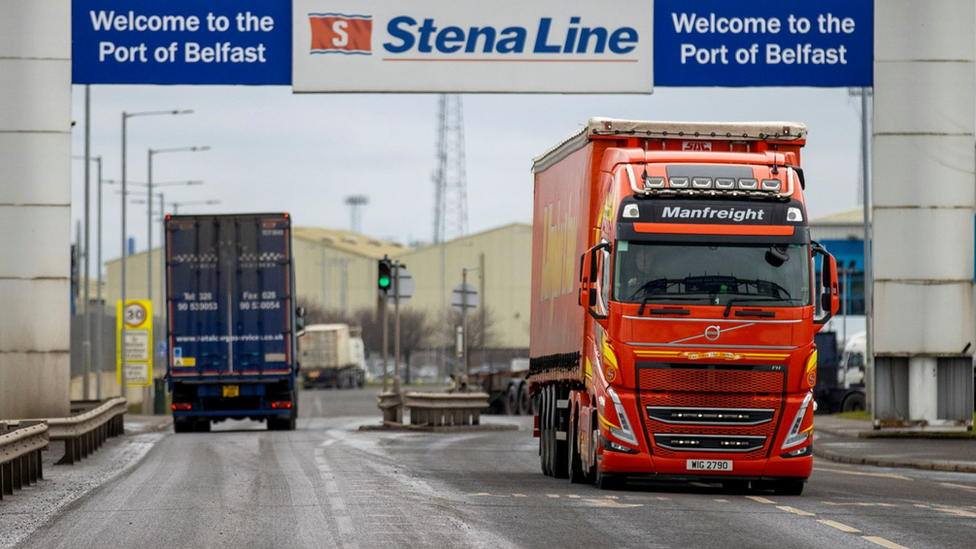
The protocol has resulted in checks on goods travelling from Great Britain to Northern Ireland
Foreign Secretary James Cleverly has said intensive work continues on getting a deal on the Northern Ireland Protocol.
The EU's Maroš Šefčovič spoke to Mr Cleverly and NI Secretary Chris Heaton-Harris on Monday by videolink.
After the talks, Mr Cleverly tweeted that they were focused on finding a durable solution for Northern Ireland.
Democratic Unionist Party (DUP) MP Sammy Wilson said he did not believe a deal would be struck this week.
He said his party would not accept any agreement that would leave Northern Ireland subject to EU laws.
He added that if the prime minister pushed ahead with a deal which did not meet his party's requirements, he would be "very foolish".
Prime Minister Rishi Sunak's spokesman said no deal had been done as yet.
The foreign secretary said more talks would be held in the coming days.
'Put power-play aside'
The UK and the EU have been in talks for more than a year to try to resolve issues with the protocol, a controversial set of post-Brexit trade rules for Northern Ireland.
Sources had suggested a deal could be sealed this week, with momentum having built towards that at the end of last week.
But it now appears to be unlikely that anything will announced until the middle of the week at the earliest.
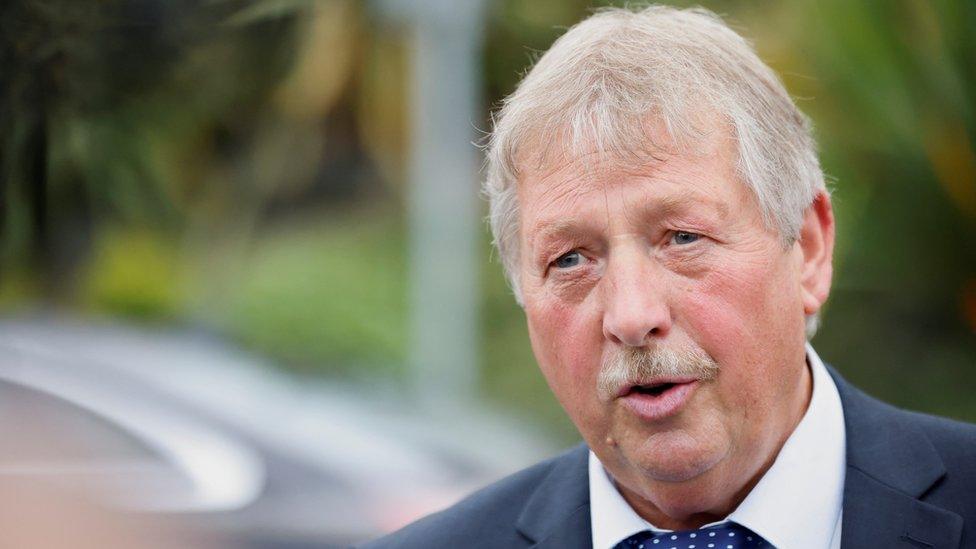
Sammy Wilson says the UK government has had a defeatist attitude in its talks with the EU
Tánaiste (Irish Deputy Prime Minister) Micheál Martin said it was time to put "power-play" aside to get a solution.
Speaking in Brussels on Monday, Mr Martin said the pace of the negotiations had not slowed in recent days.
"What's very important is that everyone now from here on thinks about the people of Northern Ireland," he said.
"Not power-play, not politics elsewhere - I think the people of Northern Ireland have had enough that, of people playing politics with their future."
He met Mr Šefčovič, the European Commission's chief protocol negotiator, for an update on the negotiations on Sunday night.
Mr Martin appeared to suggest that Mr Sunak had taken a more "problem-solving approach" than his predecessors in Number 10 and that talks had moved at a "slower pace" under previous PMs.
Mr Sunak held talks with European Commission President Ursula von der Leyen in Germany on Saturday in an effort to secure an agreement.
That came the day after a visit to Northern Ireland to pitch his proposals to the DUP.
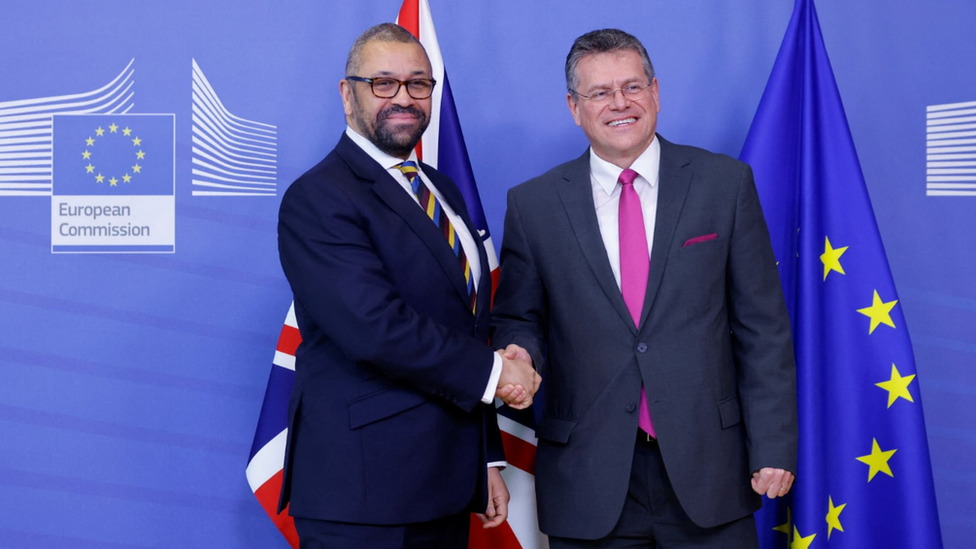
James Cleverly's talks with Maroš Šefčovič via videolink followed a face-to-face meeting in Brussels last week
The party is among the most vocal critics of the protocol and is blocking the functioning of devolved government in Northern Ireland in protest against the trade rules.
Securing the party's support for any deal will be crucial for the future of the political institutions at Stormont.
After meeting the PM on Friday, DUP leader Sir Jeffrey Donaldson said "progress has been made across a range of areas".
On Monday Sir Keir Starmer urged Mr Sunak to let MPs vote on any changes to the protocol.
He pledged that the Labour Party would "put party politics to one side" to vote with the government so it does not have to rely on support from Conservative MPs.

What is the Northern Ireland Protocol?
It is the trade deal that was agreed between then PM Boris Johnson and the EU to ensure the free movement of goods across the Irish land border after Brexit.
It came into effect in 2021 and has resulted in checks on goods travelling from Great Britain to Northern Ireland.
Unionist parties argue that placing an effective trade border across the Irish Sea undermines Northern Ireland's place within the UK.
The largest of those parties is the DUP, which is refusing to take part in Northern Ireland's power-sharing government until its concerns are resolved.
But a majority of members of the Stormont assembly are in favour of the protocol in some form remaining in place.
Sinn Féin, the Alliance Party and the SDLP have said improvements to the protocol are needed to ease its implementation.

- Published15 February 2023
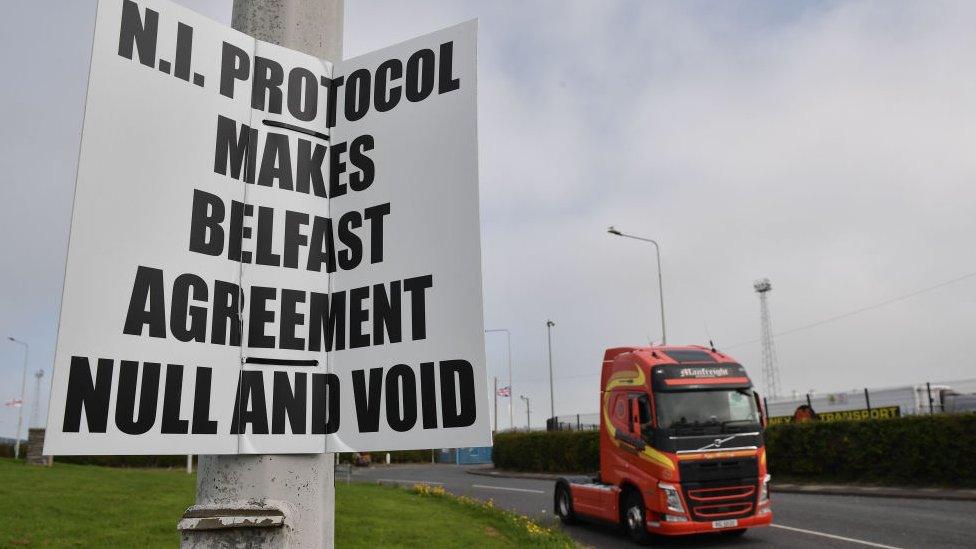
- Published8 February 2023
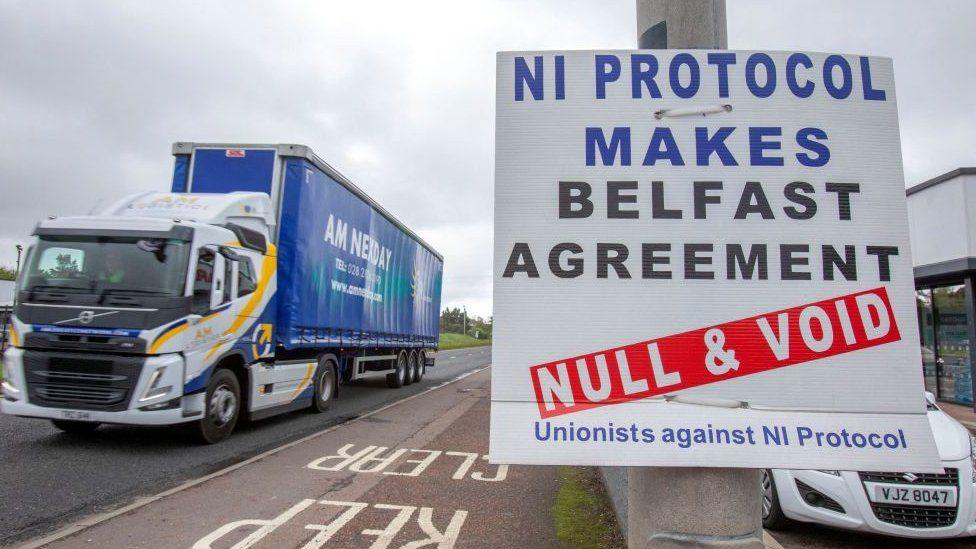
- Published2 February 2024
